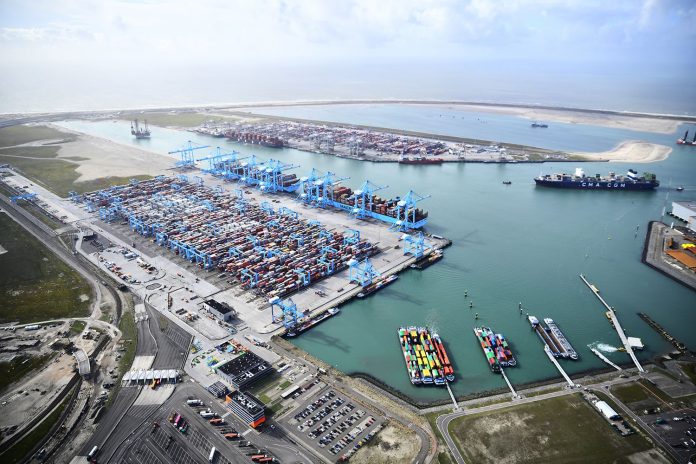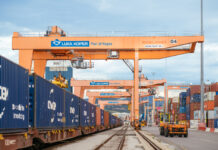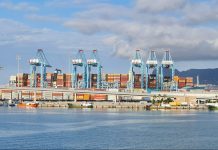
The conflict in Ukraine has prompted the European Union (EU) and other bodies to impose a number of sanctions on Russia that currently have not impacted imports of energy products, such as crude oil, oil products, LNG, and coal in the Port of Rotterdam, the busiest container port in Europe.
The port’s export and transhipment container sector, however, suffer from the uncertainty caused by the conflict. Of the roughly 470 million tons transshipped through the Dutch port, 13% of them or 62 million tons are oriented towards Russia.
Products such as steel, copper, aluminium and nickel are exported from Russia via Rotterdam, as well as large amounts of energy carriers, which currently comes to roughly 30% of Russian crude oil, 25% of LNG, and 20% of oil products and coal, according to the Dutch port’s data.
“This is not yet covered by the trade restrictions announced by the European Union and it is currently unknown what the developments in Ukraine will mean for these flows in the coming period,” said the port in a statement.
In total, 10% of the European busiest port‘s container transport is linked to Russia.
The EU has restricted the export of a number of goods that can be used for both civilian and military purposes, which means that container cargo destined in Russia will receive extra Customs inspections.
Furthermore, North Atlantic Treaty Organization (NATO) and the American armed forces have had agreements with one company in the port of Rotterdam for decades, covering the transport of defence materials that are regularly transferred via the port. It is, therefore, possible that there will be more transports of such materials in the short term.
“The Rotterdam Port Authority has not independently drafted any policies of its own in response to the conflict in Ukraine, nor does the Port Authority have the authority to do something like impose restrictions on businesses. This is the responsibility of the Dutch government,” noted the port authority.




